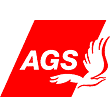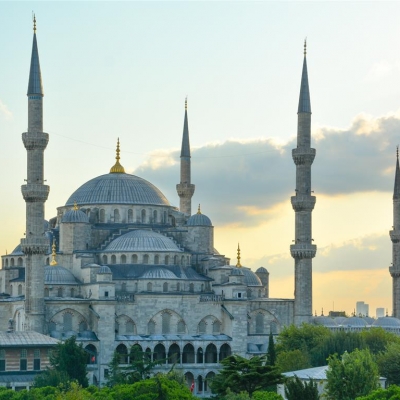Getting Connected: Electricity, Gas, Water in Turkey

Electricity
Turkey’s electricity sector is undergoing a significant modernisation and privatisation programme which is expected to be complete by the end of 2013. As a result, the creaking public monopoly is being swept away and replaced with a number of independent suppliers. If you are buying or renting in Turkey, you will need to contact your local supplier and arrange to be connected. Most of the major suppliers have websites with at least some content in English. Aydem supplies electricity in Aydın, Denizli and Muğla provinces (where most coastal expats live) and provides an English language helpline (dial 44 44 186 then press 9).
To connect to your supply, take a meter reading, make a note of the installation number and pop down to your provider’s local office to complete a subscription form. As a general rule of thumb, you will be asked for proof of your identity and address. You may also be asked to pay a connection fee. Standard domestic customers will usually have a choice of a fixed-rate tariff, or a 3-rate tariff based on peak and off-peak consumption:
Day Rate (Gunduz) 06:00 to 17:00
Peak Rate (Puant) 17:00 to 22:00
Night Rate (Gece) 22:00 to 06:00
Always check with your supplier that there are no outstanding bills from the previous owner or tenant or you may end up being charged for a bill that isn’t yours.
Bills are usually sent monthly, though some suppliers will issue them quarterly or every six months. Given the unpredictability of the Turkish postal system, it’s safer to pay your bills by direct debit or through on-line banking. You can also pay at post offices, some banks and at your local supplier’s office. Remember to pay your bills on time. If you don’t cough up within ten days, you may get cut you off and a penalty fee will be added to your bill.
Turkey's electricity supply uses 220 volts AC with a frequency of 50 hertz. The country uses standard 2-pin plugs and sockets and international adaptors are available at airports and large hardware stores. Power outages and surges are relatively common and purchasing surge protectors (widely available) is a must if you want to protect your fancy electricals from blowing up. I’m not kidding.
Gas
Mains gas is only available in the larger Turkish cities such as Ankara and Istanbul. If you are one of the lucky ones, you will need to open an account with the gas supplier and provide the usual identification. As with electricity, check that there are no outstanding bills from the previous owner or tenant. Mains gas is metered, so take a reading when you first open your account. If you are connecting gas for the first time, you will need a Gas Compliance Certificate (Doğalgaz Uygunluk Belgesi) and an inspection by an authorised gas engineer. Bills are usually sent monthly. You can elect to pay your bills by direct debit, via on-line banking, at banks and post offices or at the local office of your gas supplier.
If you are not connected to natural gas, you will need to use tüp gaz (bottled gas), readily available throughout Turkey and delivered free of charge in most towns. To be on the safe side, always ask the gas supplier to connect the bottle for you, and make sure the plastic seal is intact. Bottled gas is paid for when it is delivered, in cash.
A note about heating
Central heating is rare in Turkey and is mostly concentrated in the large towns and cities. Elsewhere, including all the main tourist resorts of south-east Turkey, central heating and under-floor heating are virtually unheard of, and very expensive to run. Turkish winters can be severe and houses are not generally well equipped to deal with the cold. Houses that are built for summer living tend to be open plan to kept them cool during the blistering July and August heat – an obvious drawback for trying stave off frostbite.
There are a number of ways to keep warm in winter, none of them entirely satisfactory. Among them are:
- Gas Fire (fuelled by bottled gas) – expensive and creates condensation – ventilate well.
- Oil-filled radiator – ambient, dry heat.
- Air conditioning (set to hot) – instant, dry heat and often the most cost effective.
- Open fire – labour intensive and dirty – nice to look at but will only heat a small area.
- Soba (wood burner) – labour intensive and dirty but can be effective if managed properly.
- Infrared heater (Ufo) – instant, very hot dry heat for a small area. Your front will toast but your back will freeze.
- A good pair of slippers, thermal underwear, a hot water bottle and a high tog duvet.
- Smaller rooms that can be isolated.
Water
Mains water is supplied by the local municipality (belediye), is metered and relatively cheap. Bills are issued monthly, bi-monthly or quarterly and include a small amount for environmental tax. Arrangements for opening an account vary from supplier to supplier, as do the payment options. Most (but not all) have facilities for using on-line banking, otherwise, you can pay at banks and post offices or at your local belediye office. You will need to pay promptly to avoid being cut off. Once again, take a meter reading before you sign on the dotted line.
Some Turks will tell you that tap water is safe to drink but I have never seen anyone drink it. Most people opt for large bottles of water, widely available in shops and delivered free of charge in most towns.
By Jack Scott, author of Perking the Pansies, Jack and Liam move to Turkey, a bitter-sweet tragi-comedy recalling the first year of a gay couple in a Muslim land.
- My Life Abroad -
A selection of expat stories

"A fun compulsive read!"
J. Matcham, Amazon
"I strongly advise people ready to live abroad to read this book!"
Patrice, Amazon

 The Ultimate Guide: Buying Real Estate as an Expat
The Ultimate Guide: Buying Real Estate as an Expat  Basics to Real Estate Investing for the Long Term
Basics to Real Estate Investing for the Long Term  How to Avoid Real Estate Scams
How to Avoid Real Estate Scams
 AGS Worldwide Movers
AGS Worldwide Movers Fexco payment solutions
Fexco payment solutions 1stMove Car Shipping
1stMove Car Shipping Highlights of Istanbul
Highlights of Istanbul